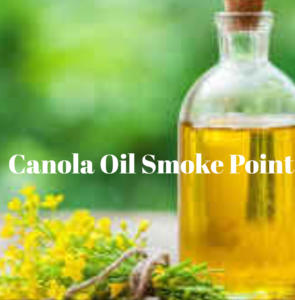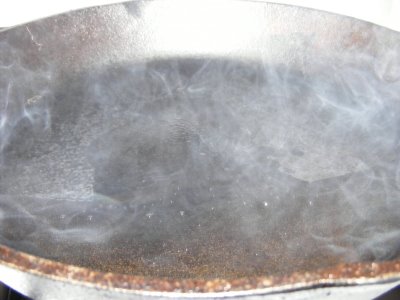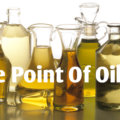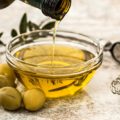Canola oil, or canola for short, is a vegetable oil derived from a variety of rapeseed that is low in erucic acid, as opposed to colza oil. Canola oil contains 7% saturated fat, compared to 9% for sunflower oil, 13% for corn oil, and 14% for olive oil. Canola oil is also very rich in healthier unsaturated fats. It’s higher in the omega-3 fatty acid alpha-linolenic acid (ALA) than any other oil except flaxseed oil. Studies have shown that ALA may help protect the heart through its effects on blood pressure, cholesterol, and inflammation. This is one of the many reasons why it is referred to as the healthiest cooking oil available on the market by its makers,
Composition of Canola Oil
Canola oil is praised by the mainstream food industry due to its fatty acid content:
- Polyunsaturated fatty acid— Compared to palm oiland olive oil, canola oil has a higher amount of PUFA. It has a ratio of omega-6 fat (linoleic acid) and omega-3 fat (alpha-linolenic acid) of 2:1.
- Monounsaturated fatty acids— This is the most abundant fat in canola oil. The MUFA oleic acid makes up 61 percent of canola oil.
- Saturated fat— Canola oil contains about 7 percent – half the amount found in corn oil, olive oil, and soybean oil.
- Vitamin & Calories — One table spoon (15 ml) of canola oil delivers (6): Calories: 124 Vitamin E: 12% of the Reference Daily Intake (RDI) Vitamin K: 12% of the RDI
Canola Oil Smoke point?
Smoke point refers to the temperature at which Canola oil begins to break down and starts to smoke. Smoking is evidence of the fat’s breakdown resulting in the release of trans fat, free radicals and toxins that often find their way into your food and consequently lead to health complications. Canola oil have moderately high smoke points, making them good for sauteing over medium-high heat.
Cooking With Canola Oil
Because of its light flavor, moderately high smoke point, and smooth texture, canola oil is one of the most versatile cooking oils. However, as with many oils the many health benefits of canola oil derivable from its rich nutrient profile are often lost when heated to or above smoke point. The consequences of heating cooking oils extend far beyond the immediate risk of burns by splattering hot oil. Research has demonstrated that all oils can withstand varying levels of heat. If that level is exceeded, however, the oil not only begins to lose its nutritional value and flavor, it produces toxic fumes and hazardous substances called free radicals.
| Type | Quality Level | Smoke Point °C | Smoke Point °F |
| Canola oil | (Expeller Pressed) | 190 -2320°C | 375- 450°F |
| Canola oil | Refined | 204°C | 400°F |
| Canola oil | Organic | 107°C | 225°F |
Dangerous By Products of Canola Oil Smoking
The breakdown of oil result in the release of trans -fat, free radicals and toxic fumes. Understanding the health implications of these byproducts of heating canola oil to its smoke point temperature is very important:
Toxic Fumes
In a study published in 2010 by the “Food Chemistry” journal, researchers studied the emissions from four commonly used oils — safflower, canola, extra virgin olive and coconut. Each was heated to four temperature levels, and its emissions were analyzed for certain toxic fumes, including aldehydes, which are known to be cancer-causing. When an oil exceeded its smoke point, the amount of toxic fumes increased significantly, according to the study. Canola oil, with the highest smoke point, gave off the lowest levels of toxic fumes. Coconut oil, which has the lowest smoke point of the four studied, emitted the greatest amount of total volatile fumes at all but the lowest temperature.
Free Radicals
Chemical byproducts in the toxic fumes generate free radicals, which are damaged cells. Once inhaled, they have the potential to damage other healthy cells in your body by changing their DNA. Over time, these damaged cells accumulate and can become precursors to various diseases such as cancer. Health professionals encourage limiting exposure to external free radical sources, such as air pollution, cigarette smoke and fumes from overheated cooking oil — and consuming a diet rich in antioxidants, which is a natural defense against them.
Trans fats
The American Heart Association recommends cutting back on foods containing partially hydrogenated vegetable oils to reduce trans fat in your diet and preparing lean meats and poultry without added saturated and trans fat. Tran fat raise your Low-density lipoprotein (bad cholesterol ) and lower your good (HDL) cholesterol levels.
Public Health Nigeria an Interdisciplinary public health movement focused on health education, advancing fair public health policies, promoting fitness, healthy diets, responsible behavior, community health and general well-being.






